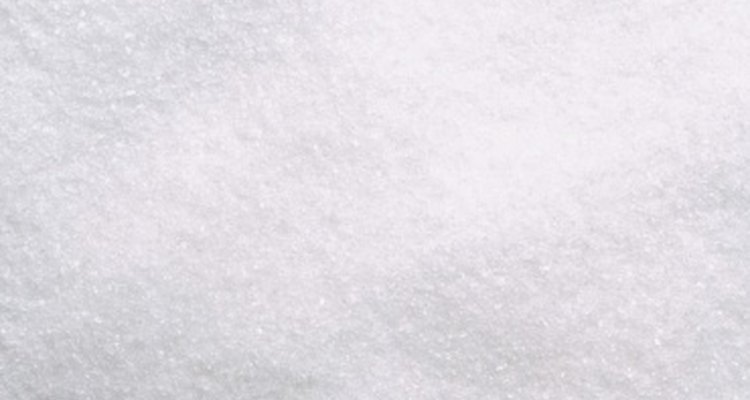
Saccharin is an artificial sweetener most commonly seen in the brand Sweet'N Low. According to the Department of Human Nutrition at the University of Hawaii, saccharin is up to 700 times sweeter than traditional sugar. Though saccharin is a versatile sweetener product, it has disadvantages in culinary applications and health concerns that have made this low-calorie sugar alternative a topic for many discussions.
Taste Changes and Ratios
Recipes that call for sugar rely on that ingredient to balance out salts and fats with sugar's sweetness. Since artificial sweeteners are much stronger than regular granulated sugar, a product baked or cooked with artificial sweeteners, such as saccharin, can have an overly sweet taste. You can use saccharin in place of real sugar to sweeten things like iced tea and coffee, but use less saccharin than than you would use traditional sugar. It could be difficult at first to find a desirable amount of saccharin without oversweetening a cup of java. Saccharin sometimes leaves an aftertaste when used for sweetening drinks and pastries; therefore, an aftertaste should be considered before adding it to specific recipes.
Texture Changes
Since saccharin is a sugar substitute, it does not dissolve the same as granulated sugar in baked goods and recipes. When sugar substitutes do not bake off or dissolve, they can give a gritty texture to pastries and other baked goods.
Cancer Myths
The Food and Drug Administration released a study in the 1970s showing that saccharin was a cause for stomach cancer in rats, according to the National Cancer Institute. To prevent a mass panic, the FDA proposed banning saccharin use and placing warning labels on existing products. In recent years, studies by the FDA, the National Toxicology Program and the Environmental Protection Agency have found that saccharin does not cause stomach cancer.
Daily Intake Limitations
Though saccharin has been deemed safe by the FDA, individuals should still only ingest no more than nine to 12 packets of saccharin per day. This moderate intake is recommended due to the studies and complaints regarding saccharin and a possible correlation with stomach cancer — even though there is no direct evidence that saccharin causes this disease.
Related Articles

How to Bake With Erythritol
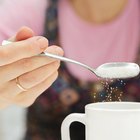
How to Substitute Splenda for Sugar
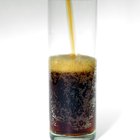
Is There Glucose in Soda?

Baking With Juice Concentrates
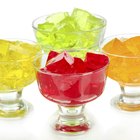
Fat-Free and Sugar-Free Jell-O Pudding ...

How to Make Sugar Free French Vanilla ...

What Is Agave Syrup?

Which Artificial Sweeteners Can Be Used ...
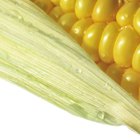
How to Substitute Light Corn Syrup in a ...
Can You Make Candy Using Honey Instead ...
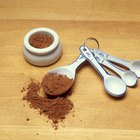
Presweetened Cocoa Powder Substitute
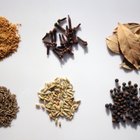
Fiber Sure by Metamucil Ingredients

Brown vs. White Sugar in Body Scrubs

Salt Water Taffy Ingredients
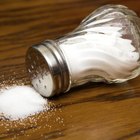
How to Find a Salt Substitute Without ...

What Is a Substitute for Potassium ...
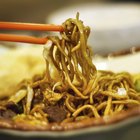
Side Effects of Monosodium Glutamate

What Is Dye Made From?

How to Make Electrolyte Water With Salt ...
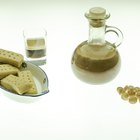
Substitutes for Hazelnut Liqueur
References
- University of Hawaii: Department of Human Nutrition: Sugar
- National Cancer Institute: Artificial Sweeteners and Cancer
- Food Reference: Saccharin
- MayoClinic.com: Artificial Sweeteners
- “Sequim Gazette”; Sugar Substitutes, Pros and Cons; Susan Sorensen; January 2011
- 3 Fat Chicks on a Diet!: Pros and Cons of 4 Sugar Substitutes; February 2010
Writer Bio
Shailynn Krow began writing professionally in 2002. She has contributed articles on food, weddings, travel, human resources/management and parenting to numerous online and offline publications. Krow holds a Bachelor of Science in psychology from the University of California, Los Angeles and an Associate of Science in pastry arts from the International Culinary Institute of America.
Photo Credits
Jupiterimages/Comstock/Getty Images